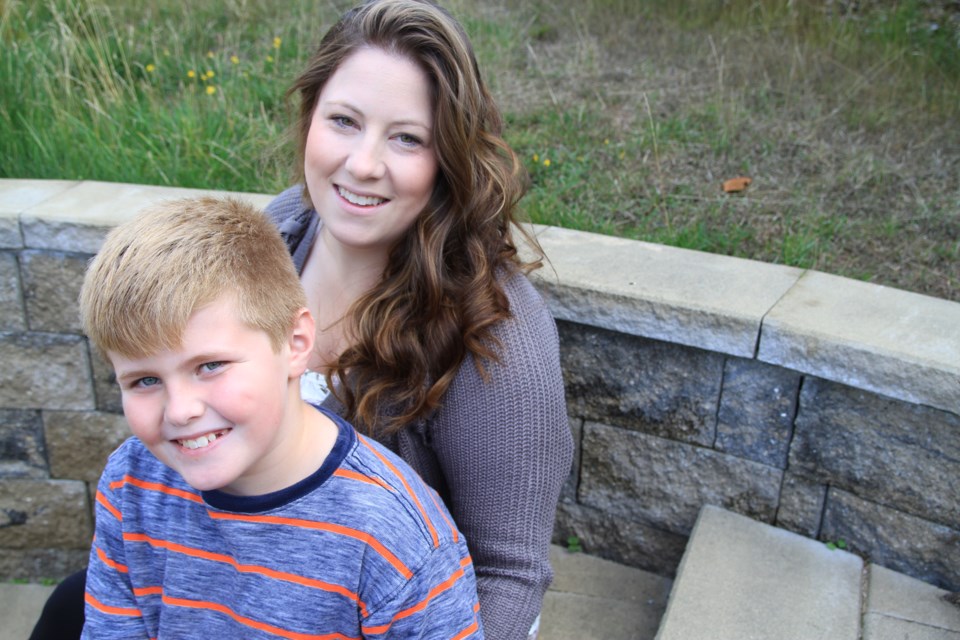For this two-part feature, the Courier also spoke with Brandi Chapman, the woman who donated her kidney to Drielle Tousignant. Read Chapman's story here.
Victoria resident Drielle Tousignant is a pretty young woman with dark hair, bright eyes and a killer smile.
And while the 31-year-old has a heart of gold, be aware that if Drielle even thinks you’ve slighted a family member or friend, she’s been known to go all mamma bear faster than, well, a mother bear. I know this because for the sake of full disclosure, I’ve known Drielle most of her life and while we haven’t seen each other in person for several years, we use Facebook to stay in touch.
It’s on Facebook where I can see photos of Drielle’s handsome 11-year old son Logan — and it was on Facebook where I discovered her long-awaited kidney transplant had gone heartbreakingly wrong.
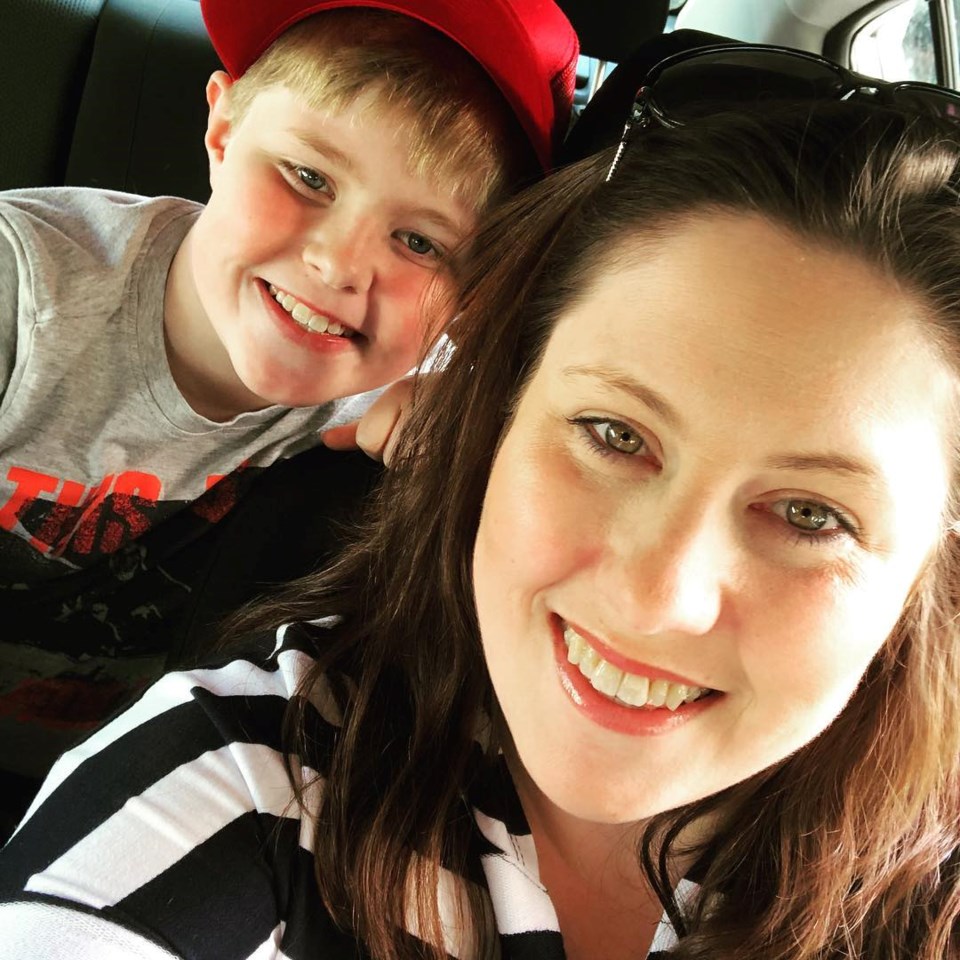
It was May 14, when Drielle underwent the complicated transplant surgery at St. Paul’s Hospital, months after “friend of a friend” Brandi Chapman saw her plea to find a living donor willing to donate a kidney — also on Facebook. Unaware the surgery was anything but a success, Drielle was devastated -- as were Brandi and her family and friends -- to get the news just hours later that the kidney had developed a blood clot and needed to be removed.
Dr. David Landsberg, medical director of kidney transplantation with B.C. Transplant and physician leader and division head of the Renal Program at St. Paul's Hospital, couldn’t comment on Drielle’s case due to privacy policies, but did say these types of failures are very rare. Landsberg is also head and clinical professor of the Division of Nephrology for the University of B.C. and Providence Health Care.
“We do about 200 of these surgeries a year and there are some years this never happens,” says Landsberg. “But on average it would be one or two failures a year so about two per cent.”
He adds at this early stage of a transplant losing the kidney is not considered a “rejection.”
“We use the word rejection if a patient has been on anti-rejection drugs for months after surgery and then their body rejects the kidney,” says Landsberg. “At this early stage it’s considered a failure.”
He notes an invasive surgery such as a kidney transplant can affect blood flow, so a blood clot is something the transplant team is very mindful of. Landsberg adds that a blood clot typically only happens when there’s a pre-existing condition with a patient and in those cases the team takes measures before the surgery to ensure the best possible outcome. That makes a case like Drielle’s even more unusual because she had — and still has — no pre-existing condition.
What’s not so rare, says Landsberg, is the guilt felt be everyone involved when a kidney fails.
“The patient feels guilt, the donor feels guilt, the team feels guilt and the surgeon feels guilt,” says Landsberg. “Everyone feels guilt. It’s devastating.”
Drielle agrees those feelings of guilt were shared by everyone.
“Very much so, especially the surgeon, he really didn't know what to say and you could see it all over his face and body language and even the tone in his voice,” she says.
Drielle held onto those feelings of guilt for six weeks until she met with her hematologist and was told the failure had nothing to do with her.
“It was just the odds,” says Drielle, who was diagnosed with diabetes at 11.
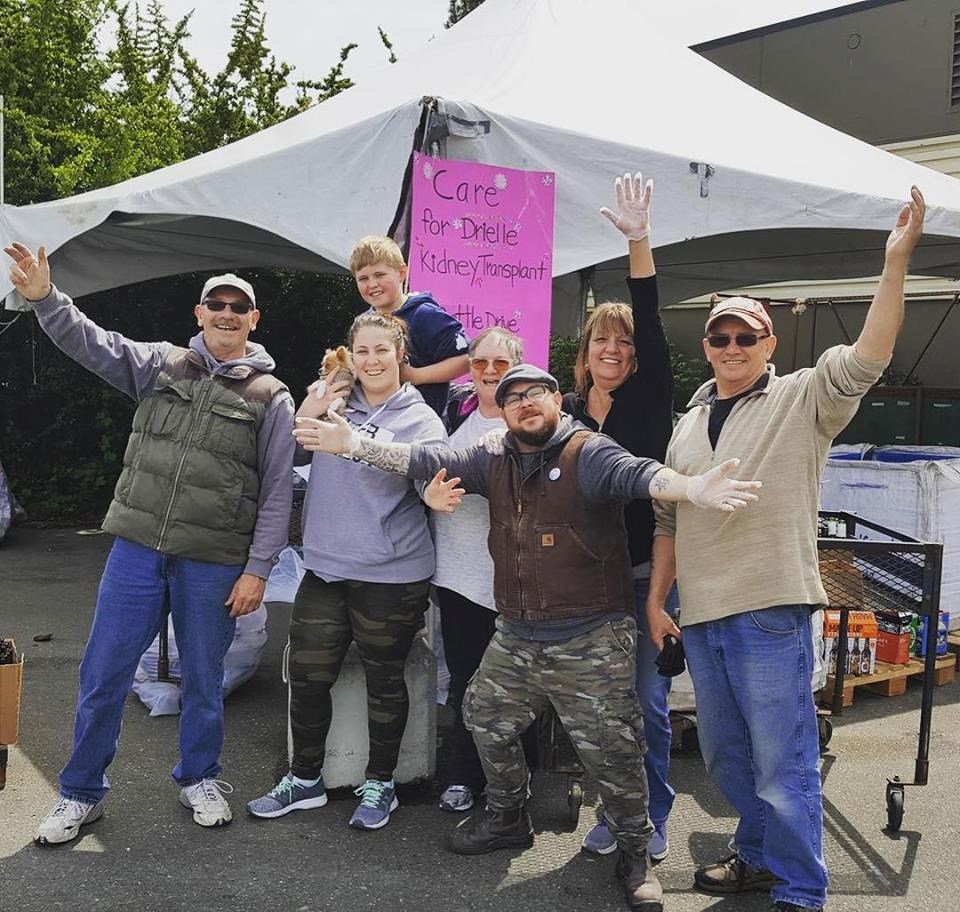
But Drielle had no idea how just sick she was until Dec. 30, 2013 after going to the doctor because she was feeling so ill and weak she couldn’t perform her duties as a home care aid at Gorge Road Hospital in Victoria. At the time, because Drielle’s kidney function was at about 45 per cent, her doctor sent her for blood work after which she just carried on with her move from her apartment to her mom’s home, despite her extreme fatigue.
“My mom noticed that my work had been calling, but I ignored it because I thought they were just calling for a shift, but after a few calls my mom said to answer the phone because it was persistent,” says Drielle. “I answered and it was Dr. Horgan [nephrologist] telling me my kidneys had shut down and my potassium was at seven and I urgently needed to get to the hospital and there was a bed waiting for me.”
Dr. Horgan insisted Drielle immediately take an ambulance to the hospital and during the ensuing panic, she says Logan, who was six at the time, put his hands on her knees and said, "Will I ever see you again mommy?"
“That tore my heart out. I still think about that and break down,” says Drielle. “Just the look on his face, you could see the worry and fear. To this day I wonder how my six-year old son understood how serious it was but I didn't.”
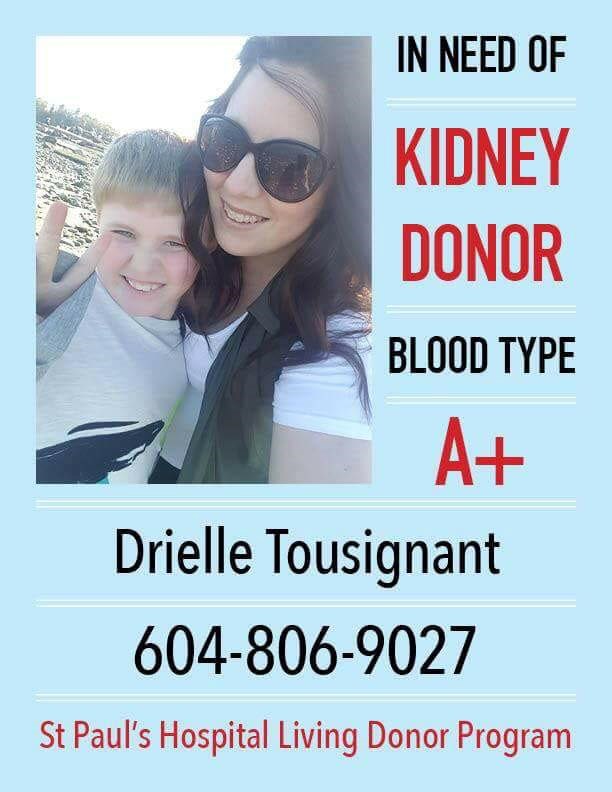
It was about four years later when Drielle’s kidney function dropped to about 20 per cent and her specialist told her to start looking for potential donors and with the help of family members, she started spreading the word. When Drielle heard from Brandi, a friend of a friend, she took it with a grain of salt because while others had offered to see if they were compatible, none had actually done the testing.
“I don't remember the exact day I found out Brandi was a match because she kept me in the loop the whole time, but I remember I was at Wal-Mart and I had to sit down because the room was spinning,” says Drielle. “I couldn't believe it, at this point the planning began and I started to think about how I would afford my rent back home and rent in Vancouver because after surgery I had to live in Vancouver for a minimum of three months.”
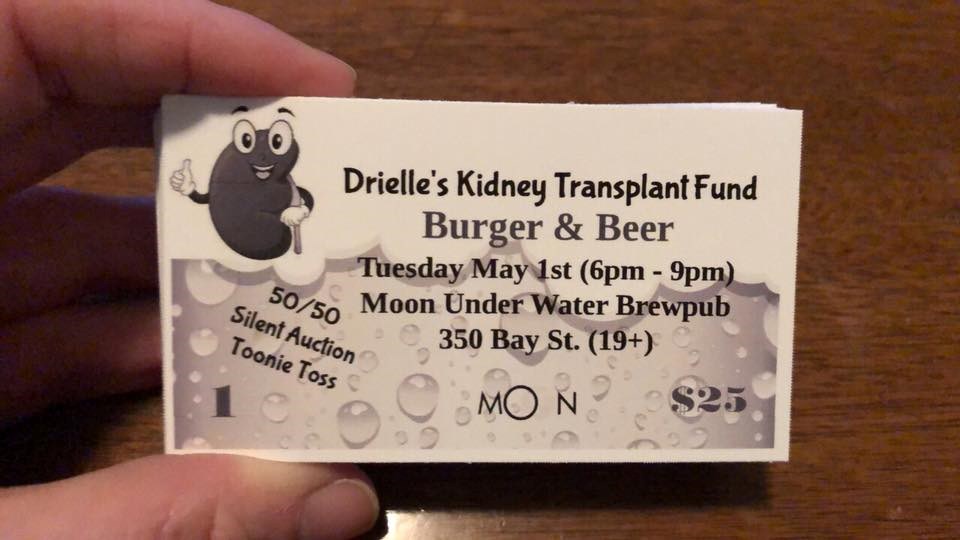
With the help of friends and family the fundraising began, which included a bottle drive, “Burger and Beer” pub night, a Jam Night her uncle organized in Ladysmith and a GoFundMe page. That money was used at the time for the expenses leading up to and following surgery, but now Drielle is back at square one, desperately looking for a kidney so she’ll not only have the energy to keep up with her growing son, but to also ensure she’ll live long enough to raise him.
Drielle has been back to see the blood specialist, who determined she doesn’t have a blood clotting disorder, and the transplant team has cleared her for a second surgery. Drielle started dialysis in October for the first time and is optimistic the treatment will help her regain some strength.
All Drielle needs now is a kidney and she’s hoping that will happen through the Living Donor Program via B.C. Transplant.
“I couldn't even express my gratitude towards Brandi for what she did, she was selfless and fought through all her fears to do this for me and Logan,” says Drielle. “To donate a kidney, you’re giving someone the gift of life. Despite what happened to me, the living donor program is vital for anyone needing a transplant.”
For more information on the Living Donor Program, visit transplant.bc.ca.
sthomas@vancourier.com
@sthomas10
